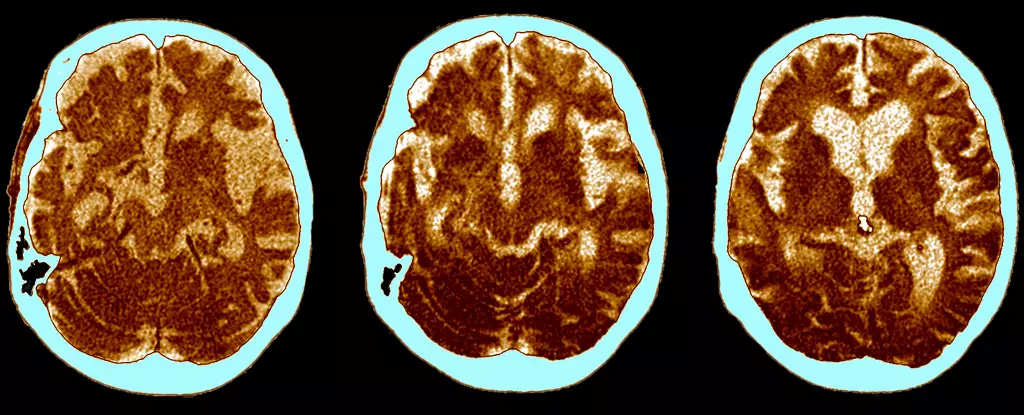The phenomenon of individuals having changes consistent with Alzheimer’s disease without showing any symptoms is a perplexing yet fascinating aspect of neuroscience. A recent study conducted by researchers from the Netherlands Institute for Neuroscience delved into this rare occurrence by analyzing brain tissue samples from the Netherlands Brain Bank. Out of over 5,000 donated brains, only 12 individuals were found to have clear signs of Alzheimer’s pathology despite being cognitively healthy during their lifetime. This provided a unique opportunity for the researchers to investigate the factors that confer resilience to the disease.
The study aimed to unravel the molecular and cellular mechanisms that underlie the resilience of certain brains to Alzheimer’s disease. By comparing the gene expression profiles of cognitively healthy Alzheimer’s brains, typical Alzheimer’s patients, and healthy controls without the disease, the researchers identified crucial differences in the resilient brains. One key finding was the enhanced activity of astrocyte cells, responsible for clearing waste from the brain and removing toxic proteins linked to Alzheimer’s development. Additionally, the resilient brains showed more efficient energy production in their cells, suggesting a mechanism for reducing the buildup of neurological garbage.
Understanding the genetic and cellular factors that contribute to brain resilience could pave the way for new treatments for Alzheimer’s disease. The researchers believe that identifying the molecular basis of resilience could lead to the development of medications that activate processes enhancing resilience in Alzheimer’s patients. With Alzheimer’s affecting millions of people worldwide and the numbers continuing to rise, finding ways to prevent, slow down, or reverse the progression of the disease is of utmost importance. Each study that sheds light on the underlying mechanisms of Alzheimer’s brings us closer to potential answers.
Despite the promising findings of the study, there are still many unanswered questions in the field of Alzheimer’s research. The next steps for the researchers involve investigating why resilient brains exhibit differences in their production processes and how these differences can be targeted with drug interventions. Determining the initiating factors of the disease process remains challenging, as it requires experimental manipulation in cellular or animal models to observe the subsequent outcomes. However, the insights gained from studies on brain resilience offer hope for the development of novel therapeutic strategies in the fight against Alzheimer’s disease.
The discovery of individuals with Alzheimer’s pathology but no cognitive decline presents a unique opportunity to uncover the secrets of brain resilience. By identifying the molecular and cellular mechanisms that protect certain individuals from the debilitating effects of Alzheimer’s, researchers are one step closer to developing targeted treatments for the disease. While there is still much to learn and many challenges to overcome, studies like this offer a glimmer of hope for the millions of people affected by Alzheimer’s worldwide.



Leave a Reply